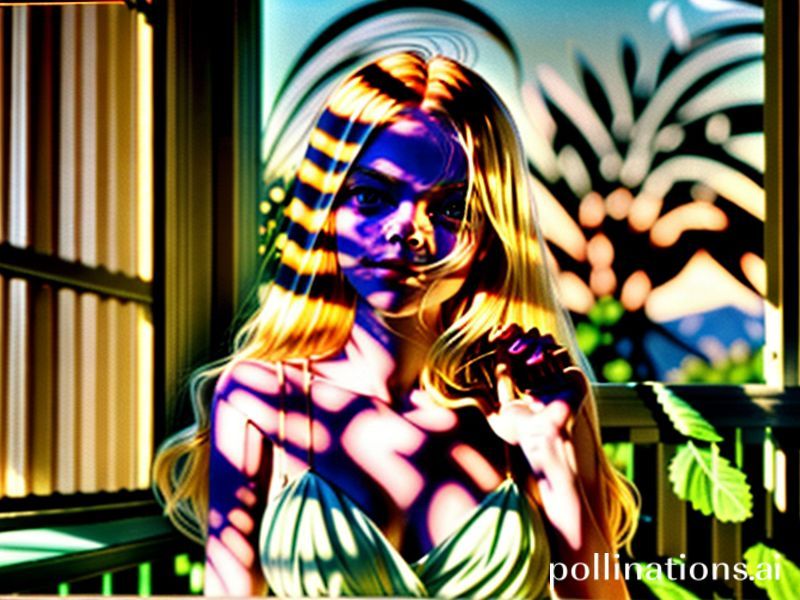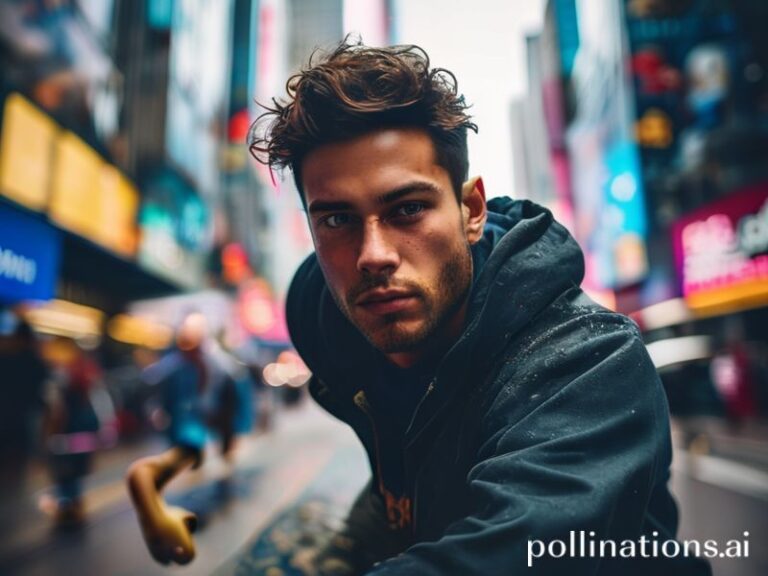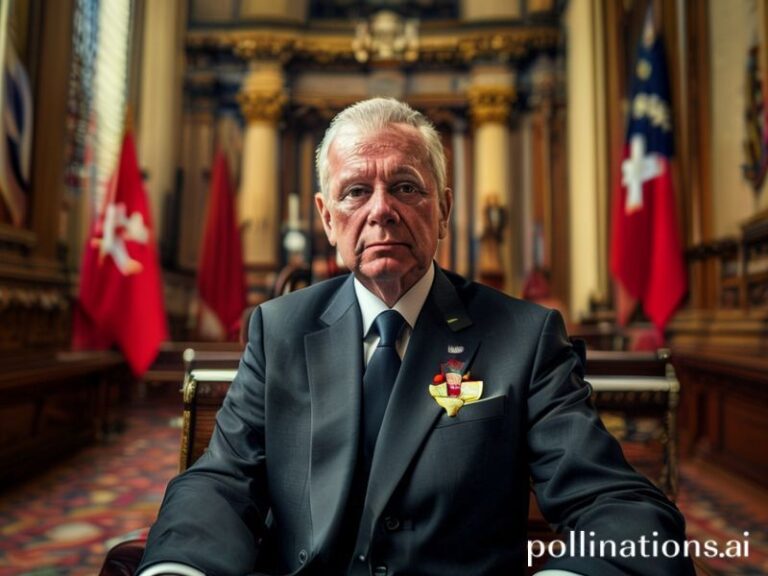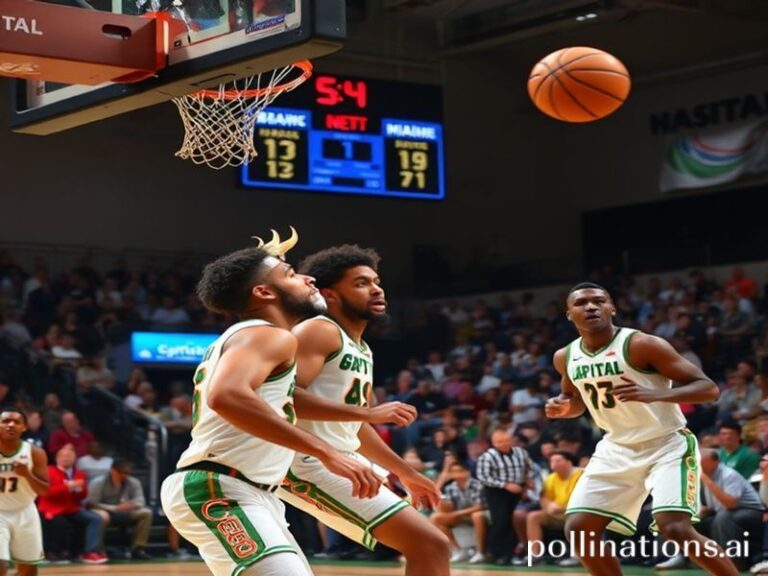Elle Fanning: The Last Empress of America’s Soft-Power Sunset
Elle Fanning and the End of the American Empire, as Told from a Café in Sarajevo
By “International Correspondent Who’s Given Up on Pretending to Be Optimistic”
Sarajevo, 07:14 a.m. CEST — A thick Bosnian coffee hisses on the table, the kind that once fortified Ottoman viziers and now fuels NGO interns who still believe in grant applications. Across the river, a billboard advertises Hulu’s latest prestige miniseries starring Elle Fanning as Catherine the Great, her porcelain face looming over bullet-pocked façades like a benevolent ghost of empire. The locals, who have seen three currencies and two genocides in thirty years, glance up, shrug, and go back to arguing about parking fines. Somewhere in Los Angeles, a publicist is popping organic champagne because that shrug counts as a Q-score uptick in the Balkans.
From this vantage point—equal parts Parisian ennui and post-Soviet fatalism—Fanning’s career looks less like a Hollywood résumé and more like a barometer of global decline. At twenty-five, she has already portrayed monarchs, martyrs, and manic-pixie aliens, a one-woman Versailles for the streaming age. While diplomats in Brussels argue over grain corridors, Fanning glides through Cannes in Rodarte, embodying the last fungible export America still dominates: the fantasy of innocence with excellent cheekbones.
Consider the geopolitical optics. When she debuted at the UN as a Youth Gender Equality ambassador in 2021, the Russian delegation greeted her with the same frozen smile usually reserved for Finnish border guards. Not because they fear an actress, but because they recognize the soft-power algorithm: take a blonde ingénue, add literacy rates, subtract drone strikes, and voilà—moral authority, now with subtitles in forty languages.
In Tokyo, otaku teenagers splice her Maleficent scenes into vapor-wave loops that soundtrack pachinko parlors, an accidental commentary on how every empire eventually becomes kitsch. Meanwhile, in Lagos, bootleg DVDs of The Great arrive six weeks early; street vendors report that customers prefer the alternate history where Russia is merely eccentric, not homicidal. One man tells me Fanning’s Catherine feels “like democracy with better wigs.” I don’t have the heart to explain the Electoral College.
Back in the States, pundits fret about “Westlessness” at think-tank brunches priced at half a Moldovan teacher’s annual salary. They should simply watch Fanning’s Instagram stories: a carousel of vintage Dior, rescue puppies, and climate-change PSAs that manage to look both urgent and professionally lit. It is, in its way, the perfect soft-power cocktail—guilt without the calories, revolution you can stream at 1.5x speed.
Yet the cynic in me (currently 73% of my personality, up 12 points since Brexit) notes the symmetry: as America’s hard power retreats behind tariffs and TikTok hearings, its cultural proxies grow ever more diaphanous. Fanning isn’t just selling shampoo and period dramas; she’s air-dropping the last breathable atmosphere of American exceptionalism. When the drones finally run out of batteries, we’ll still have that scene of her weeping over 18th-century serfs, edited into a meme captioned “mood.”
And so, on the patio of this Sarajevo café, I watch a waiter who once translated Hemingway for pocket money now explain to tourists how to take a selfie with the billboard. The coffee grows cold, the river keeps flowing, and Elle Fanning—ageless, blameless, algorithmically optimized—smiles down like a patron saint of managed decline.
Somewhere in the Kremlin, a strategist drafts a memo: “Acquire blonde.” Somewhere in Hollywood, an agent drafts a counter-memo: “Add diversity rider.” And somewhere in the global middle, the rest of us refresh our feeds, half-awake, half-in-love, half-terrified that the credits are about to roll.
The empire ends not with a bang, but with a close-up. Probably in 4K HDR.







